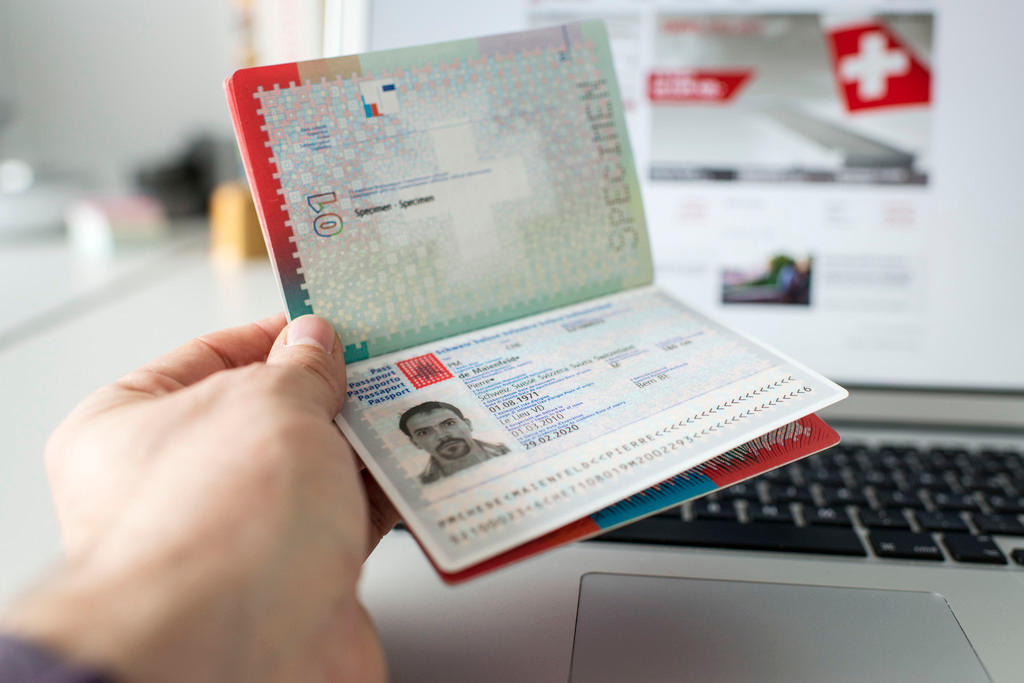As countries tighten transgender protections, will Switzerland follow?

As many countries introduce more legal protections for transgender people, Swiss politicians are examining introducing similar measures. If approved, it will be a victory for transgender rights groups, but implementation may not be easy.
The latest Trans Rights Europe Index 2017External link shows much of Western Europe has strengthened transgender rights in some way in the last five years in line with recommendations from the Council of EuropeExternal link and international human rights standards.
In mid-April, the parliament in Portugal approved a law that made the country only the sixth in Europe to allow a change of gender without medical or state intervention. A month earlier, the AustrianExternal link Constitutional Court opened proceedings to repeal state registration of sex and SwedenExternal link became the first country in the world to offer compensation to transgender people who were forced to undergo sterilisation to be allowed to change their legal gender. MaltaExternal link has been at the forefront of transgender rights, recently introducing policies on inclusion in education, healthcare, and prison facilities.

More
‘Passports should not specify a person’s gender’
Next year, the Swiss parliament will decide on an amendmentExternal link (in German) to the Criminal Code that would make hate speech and discrimination on the basis of sexual orientation or gender identity illegal. This would be in addition to race, ethnicity, and religion, which are protected at present. If passed, it would be a victory for the LGBTIQ community in Switzerland, but there is already heated debate on how such a law would be interpreted in practice and where to draw the line between hate speech and free speech.
The passage in Canada last year of Bill C-16External link, which bans discrimination and hate speech on the basis of gender identity and expression, also unleashed a fiery debate about how to implement such protections when fixed binary gender identities (man and woman or male and female) are so engrained in everything from pronouns to birth certificates.
An important signal
The Swiss parliamentary initiativeExternal link (in German) to amend Article 261 has been in the pipeline since 2013, when it was presented by Mathias Reynard of the Social Democratic party. The original text only referred to sexual orientation, but gender identity was later added. (See draft language, in German, hereExternal link.) Following consultations in 2017, the deadline for a vote in parliament was extended until spring 2019.
While transgender people are afforded some protections under current laws, Alecs Recher, head of legal services at the Transgender Network Switzerland (TGNSExternal link) (site in German, French and Italian) says passing Art. 261b would “be an important signal that Switzerland does not tolerate hate speech and discrimination against LGBT. It is also a form of prevention, discouraging people from committing such acts.”
There are also real implications for the health and safety of transgender people, says Recher. “The law would make it possible to bring a criminal case against a person who targets transgender people generally with hate speech. Current laws only protect individuals from attacks on someone’s personality or honour” under different articles of the Swiss Criminal Code and Civil Code.
The initiative also adds sexual orientation and gender identity to the prohibited grounds for discrimination in the case that a person refuses to provide someone with a service intended for the general public. Although Article 8 of the ConstitutionExternal link prohibits discrimination in general terms on various grounds including gender and way of life, the new initiative, if passed, would make such acts a criminal offence with a sentence of up to three years or a fine.
There are already some protections from discrimination at work under the Federal Act on Gender Equality. However, high unemployment rates for transgender people, estimated to be around 20% — five to six times higher than average in Switzerland — indicate that challenges remain. A study co-financed by the Swiss Federal Office for Gender Equality (EBG), found that around 25% of participants lost their jobs after coming out, or experienced a deterioration of their professional situation.
Recher explains that what really worries him is how transgender people are starting to view discrimination as normal. “When providing legal counselling, I find that people face mobbing, bullying, and discrimination so often that they have come to acknowledge it as a part of life. They don’t even see the use in pursuing legal action or telling someone about the indecent behaviour. Creating more legal protections would send the message that this isn’t tolerated and hopefully give people the confidence to speak up.”
Implementation debate
One of the key points of debate of the C-16 law in Canada is whether the law infringes upon freedom of speech. This was triggered in part by criticism from a University of Toronto professorExternal link who refused to use a preferred pronoun for his students, saying it violated his right to free speech.
ConsultationsExternal link (in French and German) in 2017 on the Swiss initiative in the House of Representatives revealed similar tensions and sharp divisions. The majority opinion argued that since transgender people are at above-average risk of suicide due to hate crimes, they warrant special protection. It also refuted arguments by the minority opinion that there are problems with interpreting concepts like gender identity. Representing the minority opinion, Yves Nidegger of the Swiss People’s Party (SVP/UDC), in an articleExternal link published in French-language newspaper Le Temps, argued that the initiative “would penalize the very groups it claims to protect. No more fitness or women-only hotels since refusing men entry is like denying someone a service because of their sex”. There were also questions about the implications for freedom of expression enshrined in Article 16 of the Constitution.
Recher does not believe that refusing to use a preferred pronoun would qualify as hate speech in Switzerland. “But, it would nevertheless be disrespectful,” he says. This aside, there are still important considerations for putting such a law into practice. This includes questions about legal gender recognition and language. While Swiss law permits a change of legal gender, there is currently no legal genderExternal link recognised beside male and female. A few courts in Switzerland still require medical procedures to legally change genders despite the European Court of Human RightsExternal link finding that this violates human rights.
Complicating things in Switzerland is the multiple languages in the country. Some transgender people argue that the gender neutral “they” for the singular in the third person makes it easier for the English language to adapt, in contrast to Switzerland’s official languages, German, French, and Italian.
Male, Female or X
A number of countries have recently taken steps to introduce alternatives to binary gender selections. In 2017, the highest court in Germany ruled in favour of the introduction of a third gender in civil documents, making it the first in Europe to do so. The Court said that the Constitution protected the personality rights of individuals who do not define themselves as male or female, adding that the current law on civil status interfered with that right.
Malta, Denmark, Australia, and several other countries allow “X” as an option in passports and other government documents. The Australian passport officeExternal link states: “We can issue a passport to sex and gender diverse applicants, identifying them as M (male), F (female) or X (indeterminate/intersex/unspecified).” It also includes instructions for people who are transitioning to another sex.
In June 2017, OregonExternal link became the first US state and the District of Columbia became the first city to allow residents to identify as other than male or female on state driver’s licenses.
Companies are also adapting. In 2014, FacebookExternal link introduced 56 gender identities to choose from including androgynous, bi-gender, intersex, gender fluid or transsexual. Other sites like Flickr allow users to put “other” while some social media sites have removed gender selection fields altogether.

In compliance with the JTI standards
More: SWI swissinfo.ch certified by the Journalism Trust Initiative












You can find an overview of ongoing debates with our journalists here . Please join us!
If you want to start a conversation about a topic raised in this article or want to report factual errors, email us at english@swissinfo.ch.